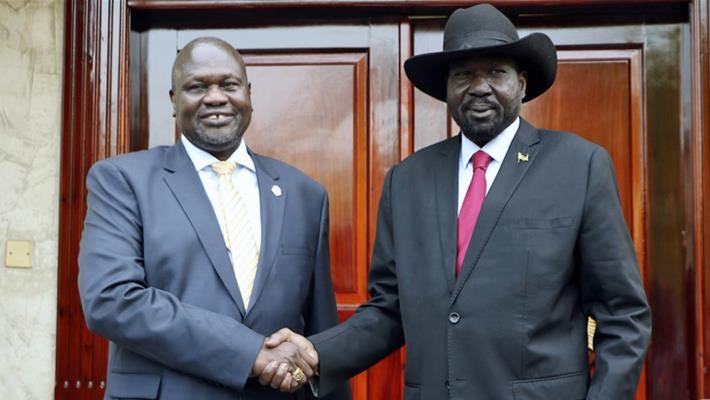By Njoki Githinji
JUBA, DECEMBER 11, 2020 (CISA) – The Institute of Social Policy and Research has advised the government in Juba to develop a balance in managing Covid-19 and the peace process that was initiated after the signing of the Revitalised Agreement on the Resolution of the Conflict in the Republic of South Sudan (R-ARCSS).
“The second wave of covid-19 infections raises concerns and uncertainties on the peace process. The government should find the right balance to ensure the spread of the coronavirus is decisively contained while maintaining some level of functionality of key institutions and public officials who can move the peace implementation forward,” the institute recommended in a research document dated November 30.
The institute urged the government to build confidence among political elites and the public for the sake of progress in the process.
“The political parties and key principals of the peace agreement should as a matter of urgency initiate activities that will build and restore public confidence and trust among themselves. The trust building should include the state and county level groups and authorities from all parties. Emphasis should be placed on hotspots of violent conflicts around the country,” the document reads.
It encouraged transparency and accountability in the way funds meant for containing Covid-19 and facilitating the peace process are used.
“Strengthen transparency and accountability in the funding of Covid-19 and peace activities …It is critical that funding is made available to institutions that respond to Covid-19 and the broader implementation of the agreement and that they are strictly and efficiently used for their intended purposes,” it said.
Emphasizing on the importance of citizen participation in the peace process and the combating of Covid-19 the institute recommended increased participation of the public in the process.
“The survival of this peace agreement depends on local ownership, particularly the inclusion and participation of the South Sudanese people at all levels. The public needs to know the content of the agreement, progress in implementation, challenges and the role they may play to support the implementation process…political parties should ensure that decisions are taken based on concrete consultations and opinions of the people,” it said.
The Revitalised Agreement on the Resolution of the Conflict in the Republic of South Sudan (R-ARCSS) was signed in September 2018 by the conflicting parties as a comprehensive agreement aiming to ‘revitalise’ the earlier transitional agreement, which sets out a revised comprehensive framework for the transition from conflict.
